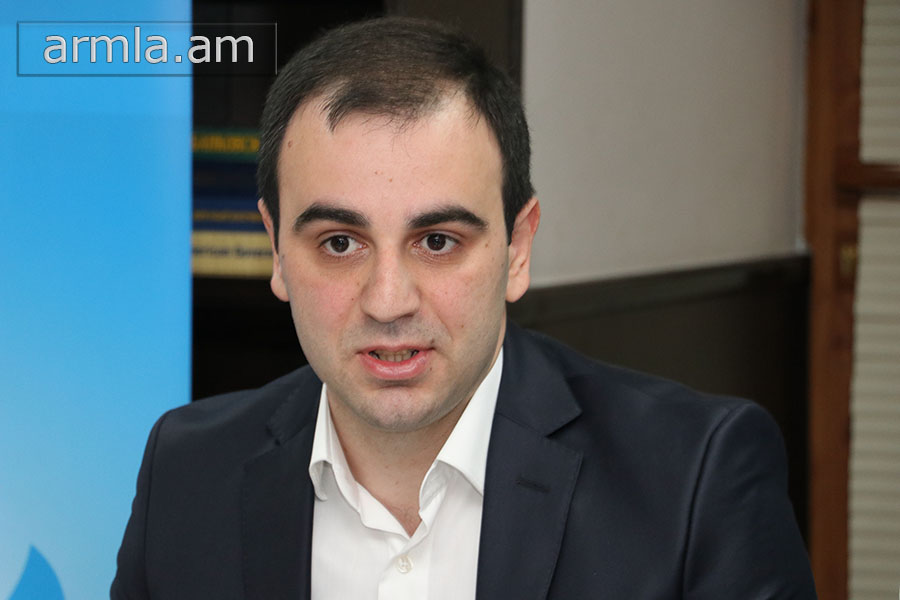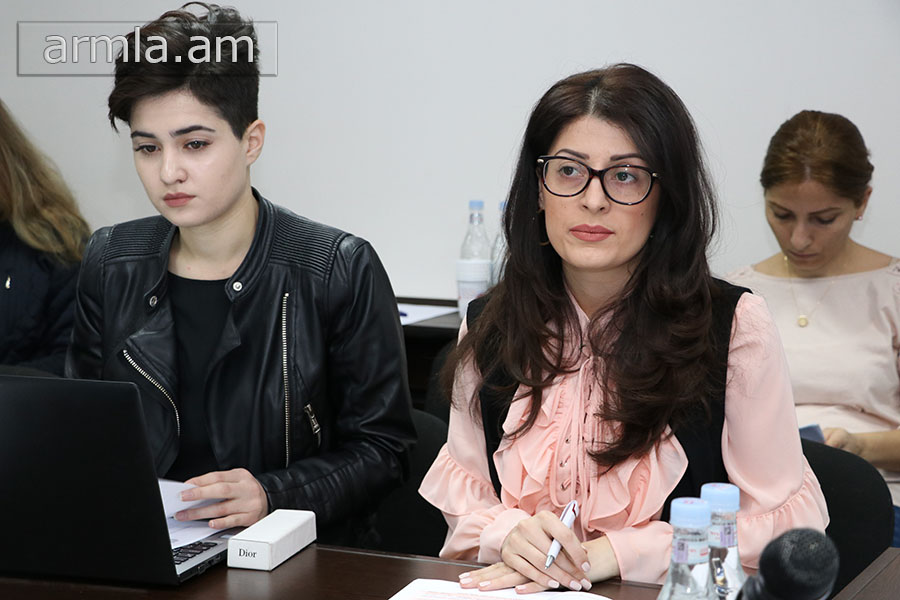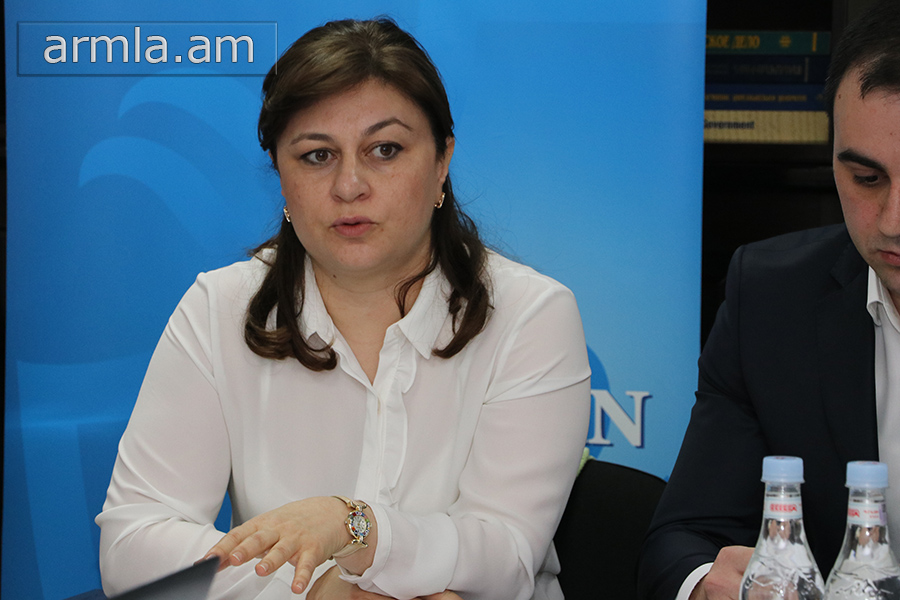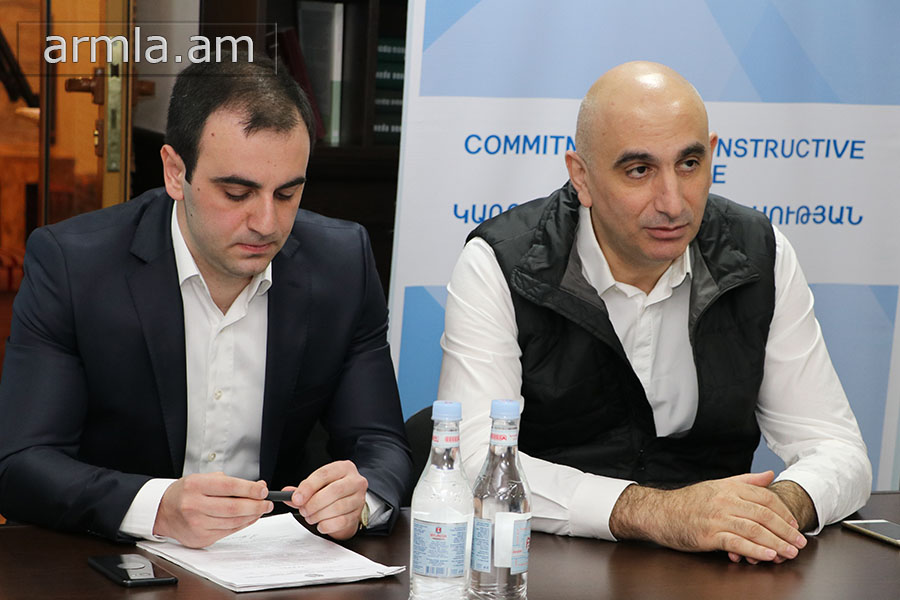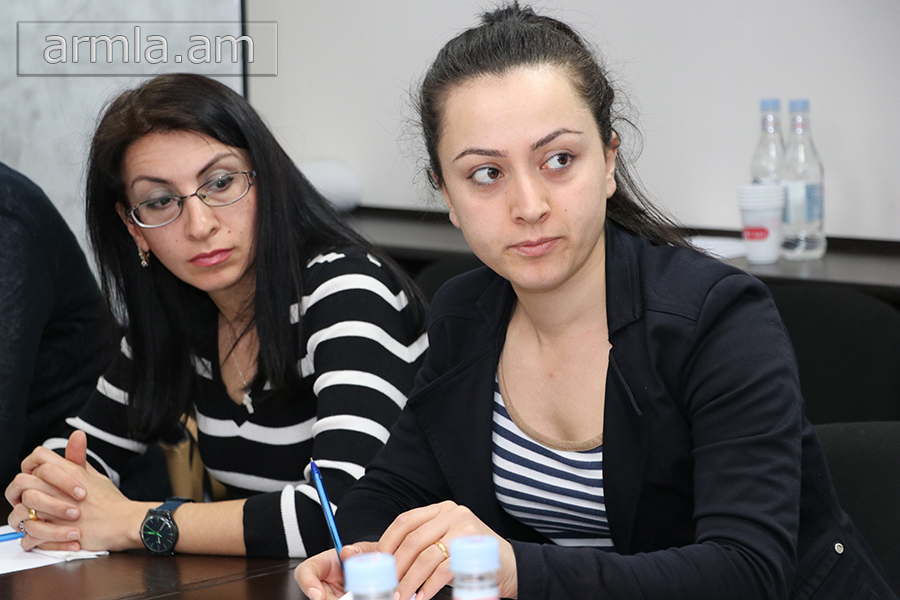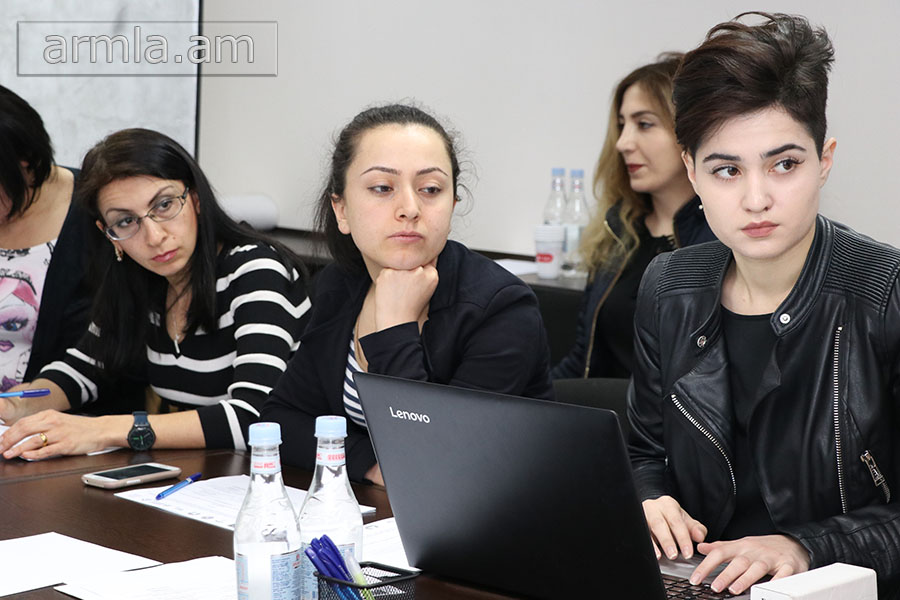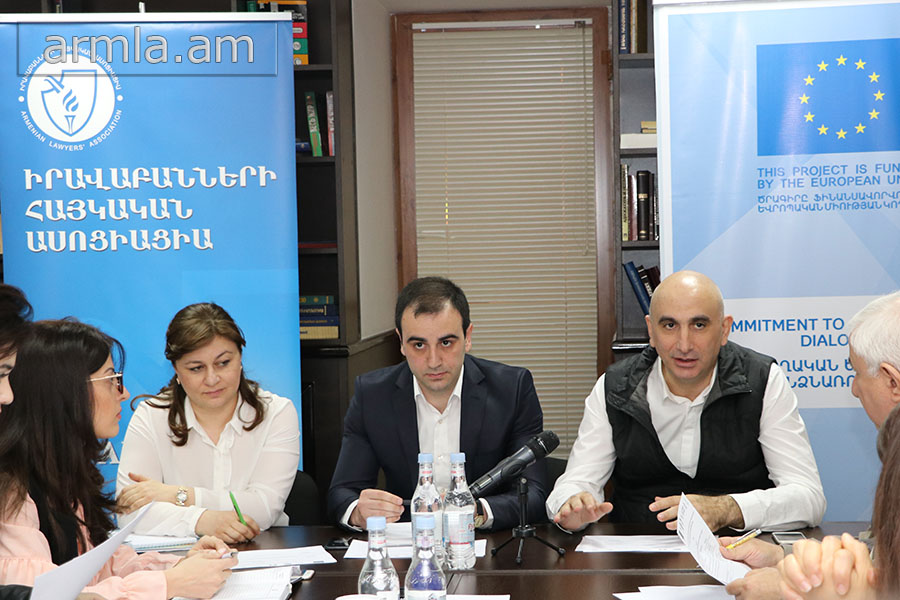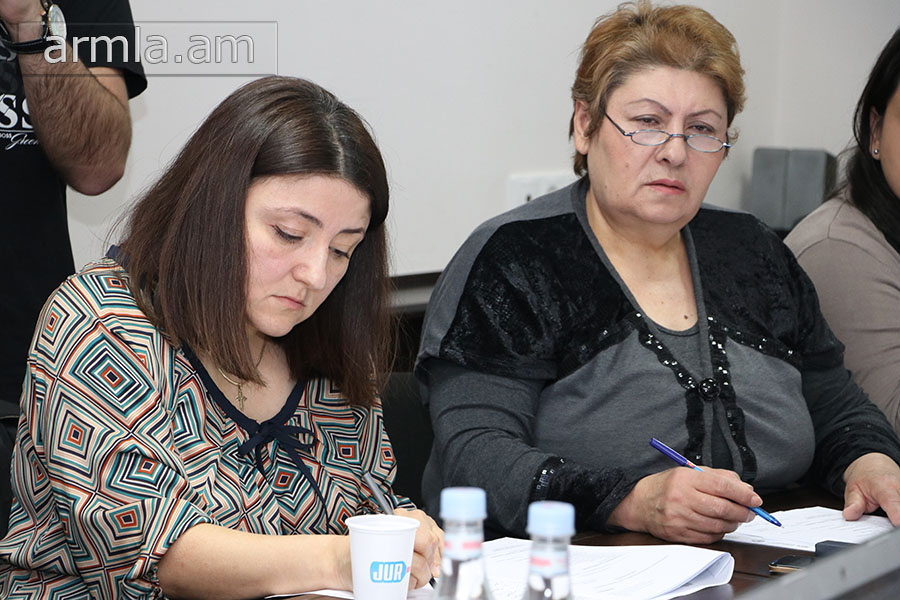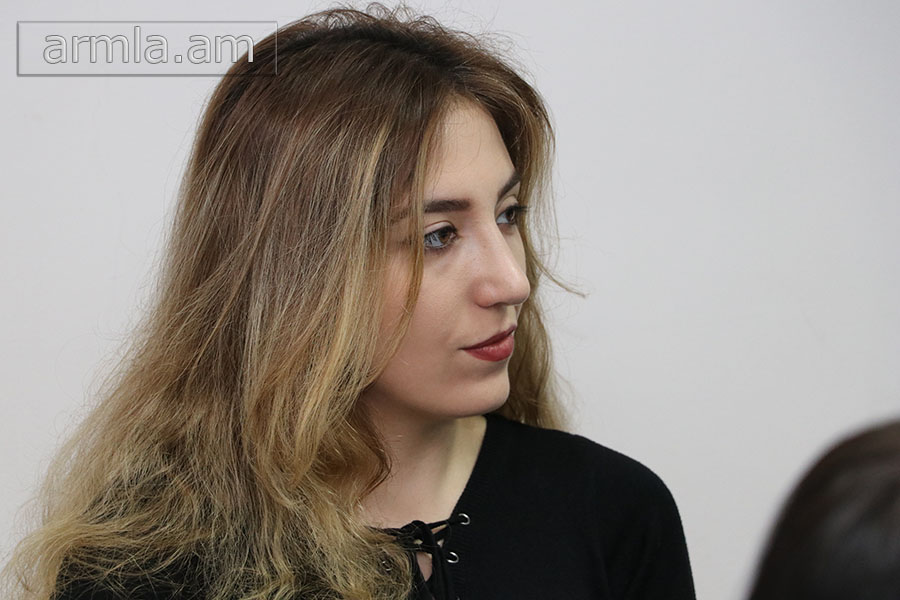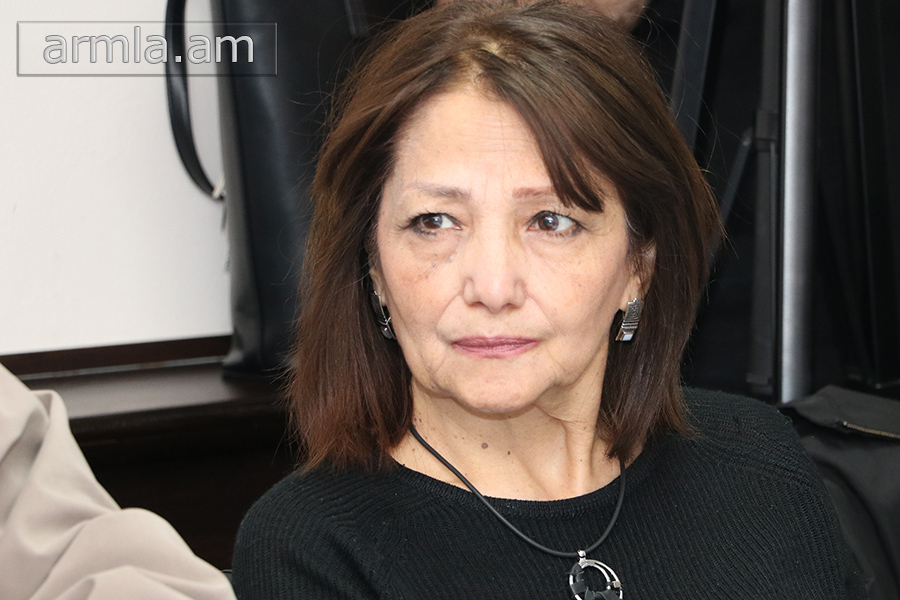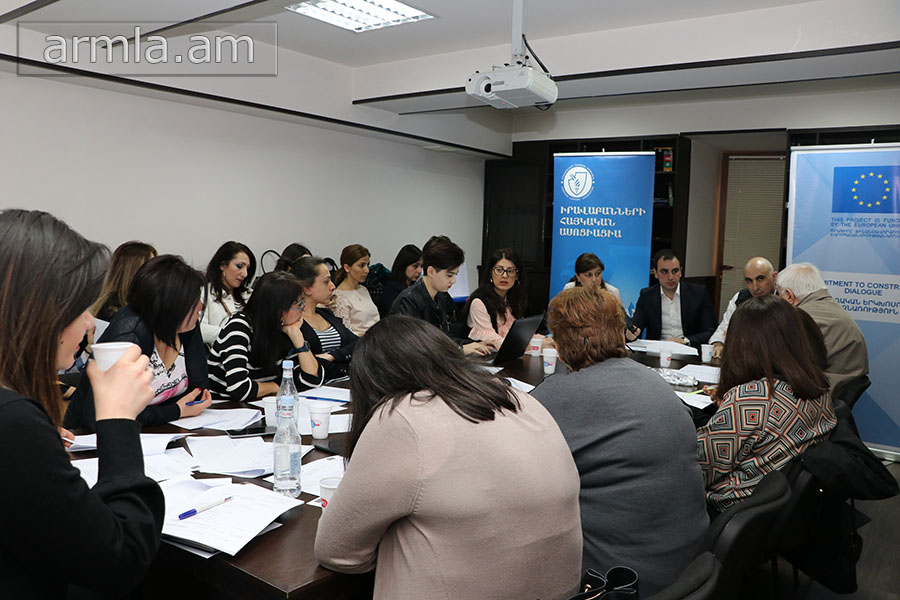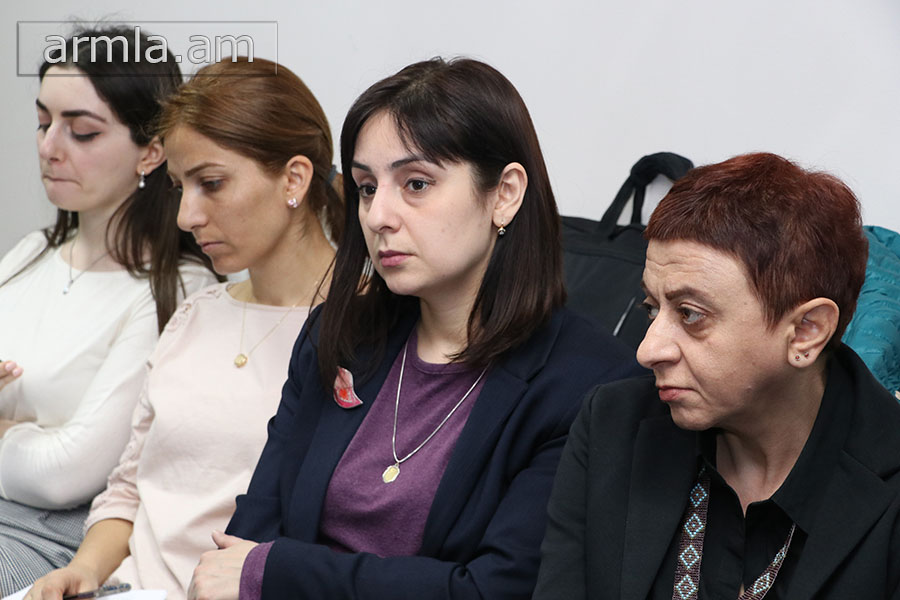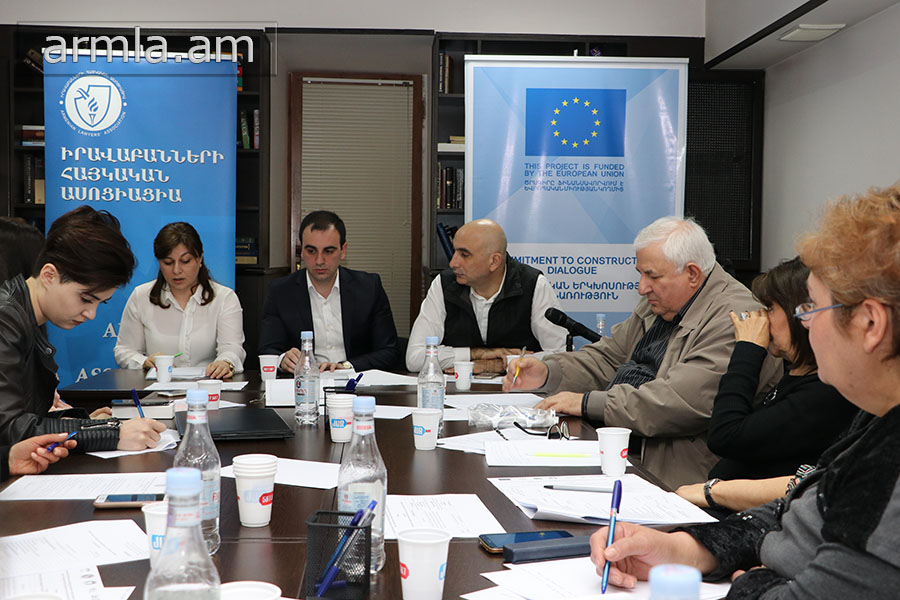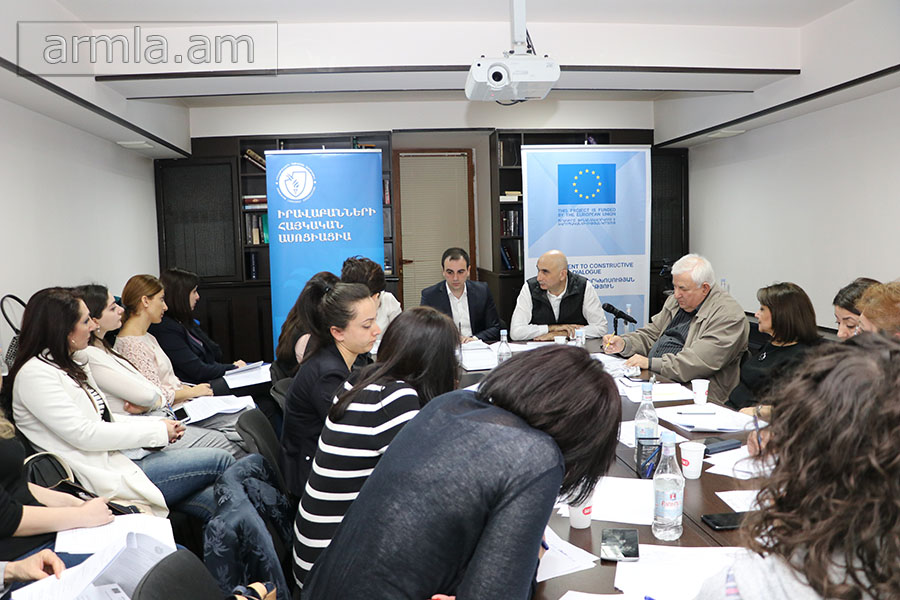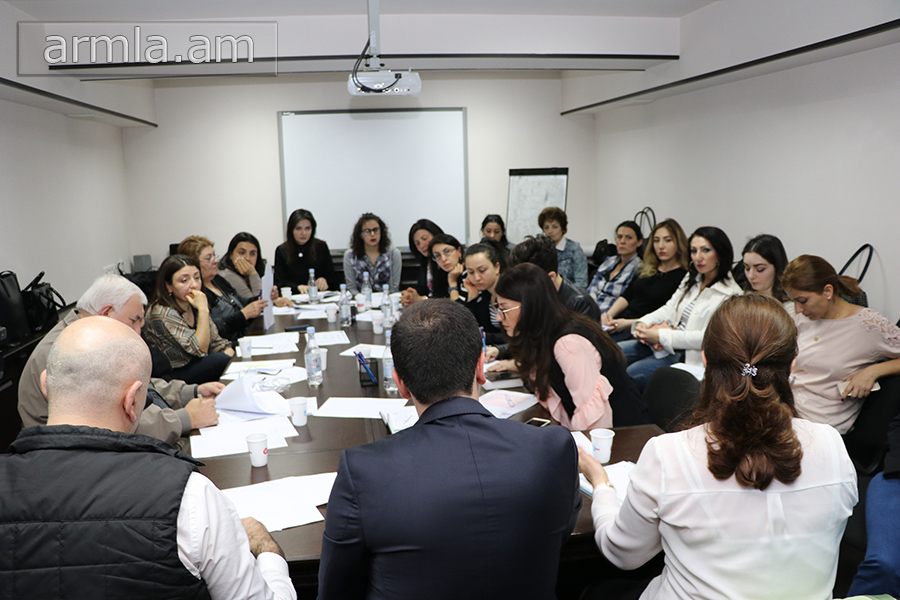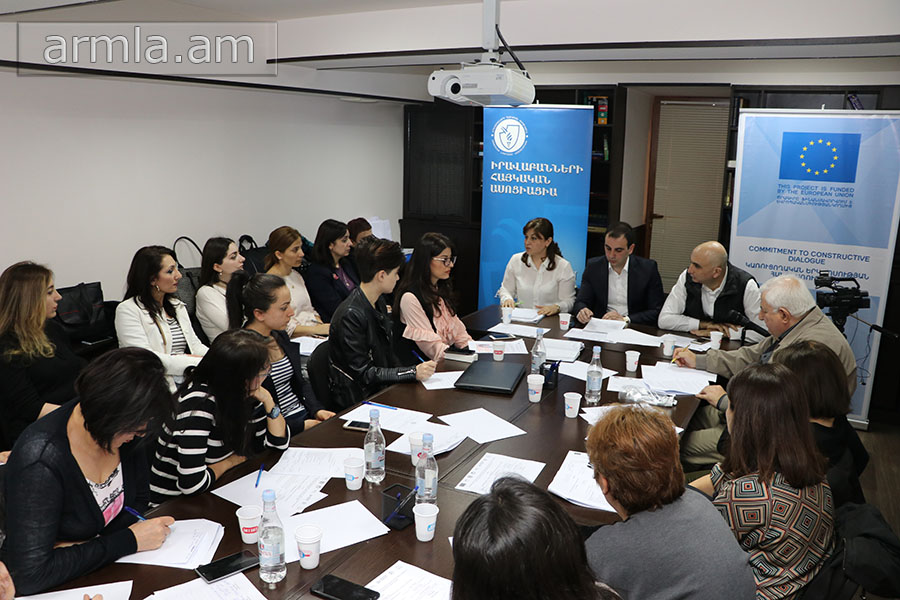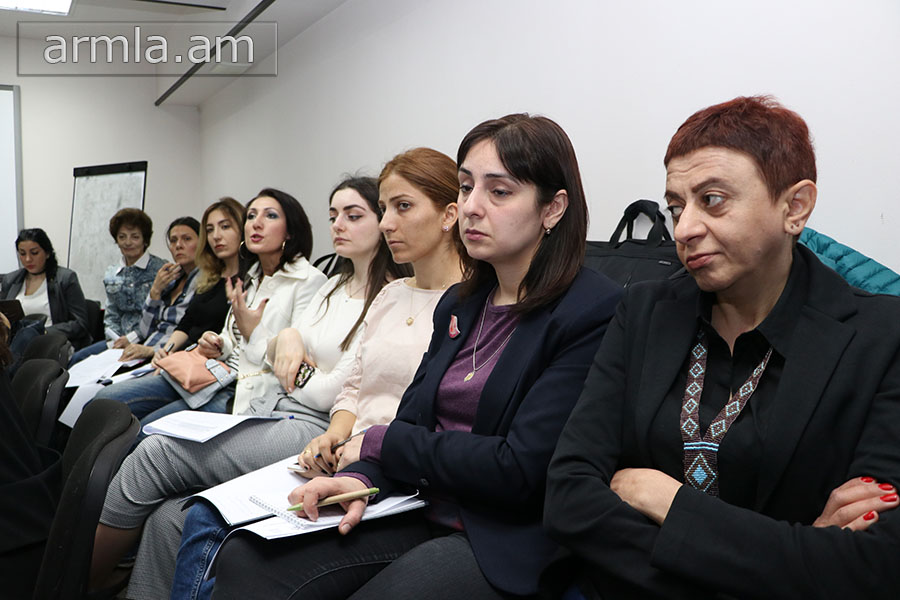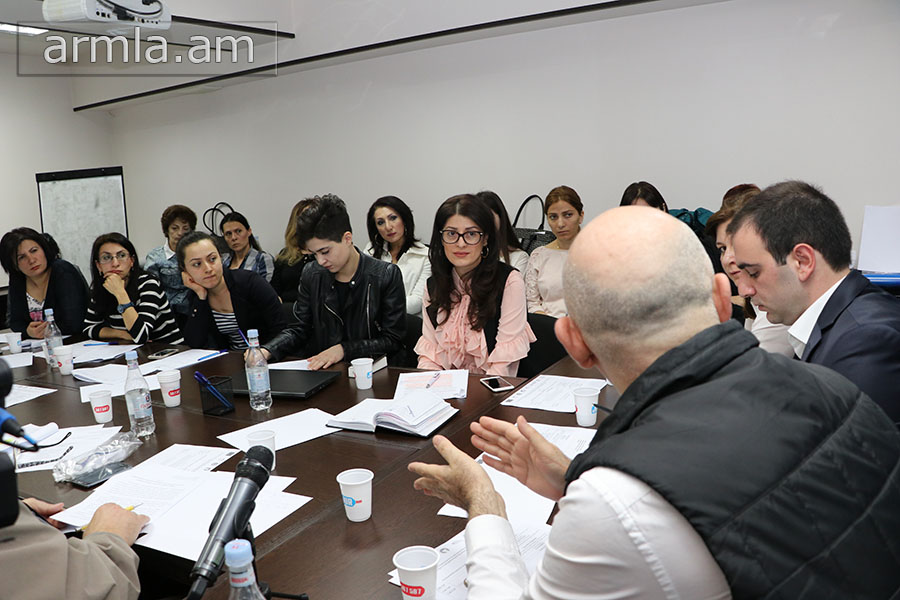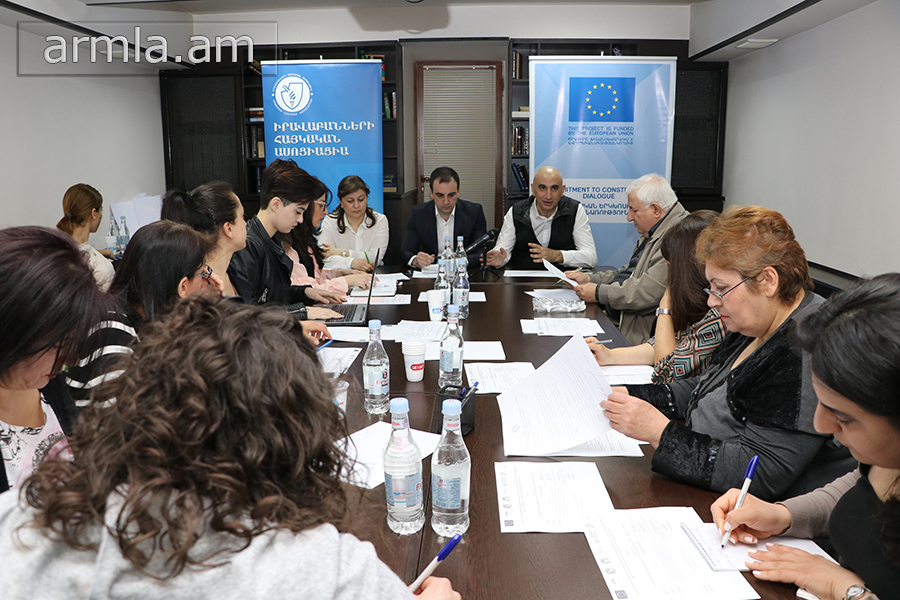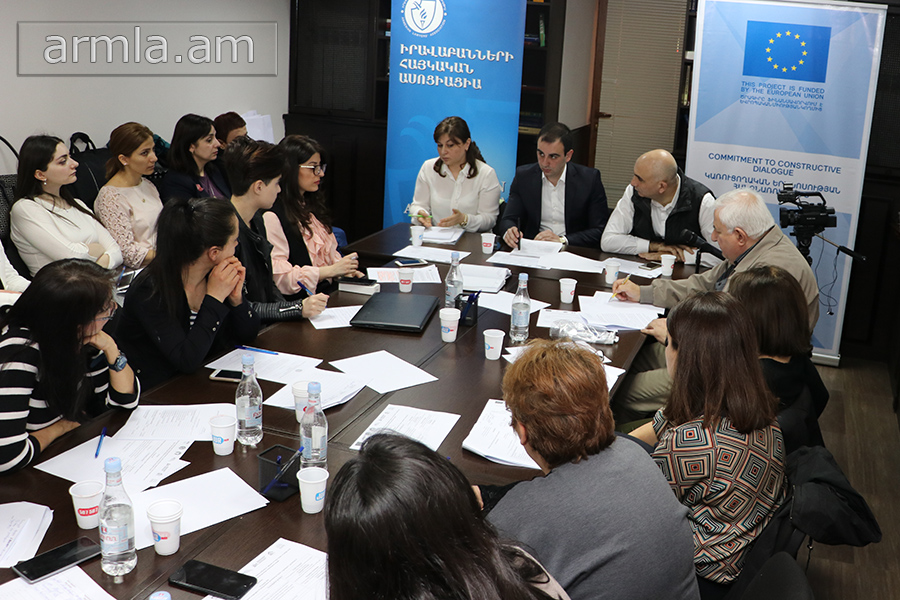On 10 April, a discussion on the procedure for submitting reports on NGO activities in the light of the Law on Non-Governmental Organisations with participation of representatives of the State Revenue Committee (SRC) was held within the the framework of the EU-funded “Constructive Dialogue Commitment” Project.
Chief Specialist of the State Revenue Committee Mr. Arman Ghazaryan and Chief Tax Inspector Ms Naira Bezhanyan provided clarifications to 19 NGO representatives.
The order No. 59 of 13 February, 2012 of the Head of RA SRC which provides the model form of the report on NGO activity, the order of filling it, the procedure for publication of the report and submission to the SRC was discussed.
“The SRC has a new subdivision, the division for control of the non-profit organisation, and NGOs should start closer cooperation with that subdivision. We hope today’s meeting is the beginning for this cooperation,” Mr. Karen Zadoyan, Project Manager, President of the Armenian Lawyers’ Association said.
“Our objective is to establish correct relationship between the SRC and the NGOs. We will accept your suggestions and discuss them. Because in this case you are the side which conducts activities, and the current issues are more obvious and clearer for you,” Mr. Arman Ghazaryan, Chief Specialist of the Division for Control of the Non-Profit Organisation of the SRC said.
The participants raised a number of issues in the form of questions and answers.
In the interview with us, Ms Anush Margaryan, representative of the Eurasia Partnership Foundation, mentioned that their organisation had some problems related to the use of public funds.
“The Law on Non-Governmental Organisations states that in case where NGOs use public funds, they should submit financial statements and the question whether the provision of services, which have been financed by the state, may also be interpreted as public funds arise. However, CRS provided verbal interpretation that it was not considered, and only the grant programs may be considered as the use of public funds,” Anush Margaryan said.
Ms Ani Arakelyan, “International Accountancy Training Center” Educational Fund, highlighted the issue of the need to develop a unified financial reporting framework for education funds, so that it is open to the public. “It would be desirable for everyone to see what the educational fund is doing, naturally, this is progress as well, we are entering the electronic era,” she said.
The Draft NGO Law has been developed by the Ministry of Justice, and not by the SRC. Control over the activities of non-profit organisations is a new function for the SRC as well, and consequently, some misunderstanding and misinterpretation may take place in changes in the law. Soon our department shall present Draft amendments of legislative or departmental acts,” Ms Naira Bezhanyan, Chief Tax Inspector said.
Summing up the meeting-discussion, Karen Zadoyan said: “We had a very constructive and free discussion, the issues that were not answered, will be collected and submitted to the SRC in writing. We shall inform everyone as soon we receive the answer,” he said.
The seminar was organised in the framework of the “Commitment to Constructive Dialogue” project implemented with the financial support of the European Union by a Consortium of civil society organisations, which are the Armenian Lawyers’ Association (lead organisation), Agora Central Europe (NGO based in the Czech Republic), the Armenian Centre for Democratic Education-CIVITAS, the International Centre for Human Development, the SME Cooperation Association and the Union of Communities of Armenia.
The main objective of the Project is to enhance the influence of CSOs on the public policy process, and the specific objectives are to strengthen the ability of CSOs to build coalitions and to strengthen the ability of CSOs to focus on constructive and strategic policy engagement with local and central government partners. The Project has a grant component, which anticipates providing sub-grants to the civil society organizations and CSO Coalitions (Networks). The project has 9 target areas including justice, education, business,.
Alisa Chilingaryan

